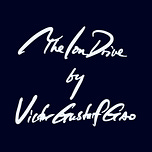Good evening.
1.
It used to be that when a person of influence passed on, eulogists and biographers would offer an assessment of the person’s life and its significance. More recently, it seems, the honor can be accorded in advance, when such person is alive and well and has simply alighted from their most visible perch.
Not a day after Jeff Bezos announced his exit as Amazon CEO (though he remains Executive Chairman) did The Guardian dispatch a column entitled ‘A managerial Mephistopheles’: inside the mind of Jeff Bezos by journalist and essayist Mark O’Connell. I quite enjoyed O’Connell’s framing, and thought he commanded clarity despite the length of his case.
O’Connell starts strong with a personal thought bubble:
If a thing is available for purchase, and I want to buy it, I know for a near certainty that I will be able to get it on Amazon, and that I will in all likelihood be able to get it quicker and cheaper than I would elsewhere…
I’d like to be able to tell you how much it would have cost me to get this book from another online seller, and how long it would have taken. But the truth is I don’t know, and I don’t know because it would have been a hassle to find out. A basically negligible hassle, maybe, but the point is that we live in a culture in which even negligible hassle amounts to a deal-breaker. It is a culture which Amazon helped to create and has come to exemplify, and of which I, as a consumer, am both beneficiary and product.
He then sets up the Faustian question:
But I am not merely a consumer…I am also a person with political beliefs, and moral principles. There is a distinction between having those beliefs and principles and acting in a way that is consistent with them – and this distinction is, I think, crucial to understanding the meaning of Amazon. What would it mean to resolve this contradiction – between my conception of myself as a person, and my Amazon purchase history?
Next, O’Connell ups the stake:
But the idea of “boycotting Amazon” arises out of a misreading of what Amazon actually is, and of its position in the contemporary marketplace. Amazon is not, and has not been for many years, merely a gigantic online shop that you can choose either to patronise or not. It is also, increasingly, the infrastructure undergirding the internet itself. Even if my task here was to convince you, the reader, that Amazon was bad and that you should boycott it – which we both know it is, and that you should – we would both of us still, in a strictly technical sense, be using Amazon. (Another, perhaps more accurate way of putting this would be to say that Amazon would still be using us.)
Amazon Web Services (AWS), which launched in 2006 and is now the largest cloud computing platform in the world, provides hosting for the Guardian, and for tech mainstays such as Netflix and Twitter, as well as for industrial giants such as General Electric and Unilever. While researching this piece, I watched Amazon Empire: the Rise and Reign of Jeff Bezos, a highly informative – and highly critical – documentary, put out last year by the US non-profit public broadcaster PBS, which itself relies on Amazon’s cloud platform. In 2013, Amazon signed a $600m deal with the US government to host the top-secret workloads of its various intelligence agencies, including the CIA and NSA, via AWS’s Thomas Pynchon-ishly named Secret Region.
Here, O’Connell’s case reaches a weak point, where he argues even space ambitions have been framed by Bezos primarily as a way to solve problems a dying planet could present to online shopping. But the column finishes on a clear note:
And here we come to the core of the problem: Amazon works too well. Its success and ubiquity as a consumer phenomenon makes a mockery of my ethical objections to its existence…
We live in a world where the satisfaction of quotidian desires is the work of mere moments. Whatever you want (and can afford) can be brought to you, cheaply and with vanishingly minimal effort on your part. We know that this form of satisfaction doesn’t make us any happier, and in fact only damages the world we live in, but even so we continue pursuing it – perhaps because it’s in our nature, or perhaps because almost every element of the culture we exist in is calibrated to make us do so.
And so the problem, as such, is one of desire. It’s not that Amazon gives me what I want; it’s that it gives me what I don’t want to want. I want the convenience and speed and efficiency that Amazon offers, but I’d rather not want it if it entails all the bad things that go with it.
2.
If Mark O’Connell and The Guardian exemplify a begrudging acknowledgment but ultimately critical view of Bezos’s societal impact, then Walter Isaacson is an unapologetic booster. In an introduction to a collection of Bezos’s writings entitled Invent & Wander, which was actually published 3 months before Bezos announced his retirement, Isaacson lavishes:
I am often asked who, of the people living today, I would consider to be in the same league as those I have written about as a biographer: Leonardo da Vinci, Benjamin Franklin, Ada Lovelace, Steve Jobs, and Albert Einstein. All were very smart. But that’s not what made them special. Smart people are a dime a dozen and often don’t amount to much. What counts is being creative and imaginative. That’s what makes someone a true innovator. And that’s why my answer to the question is Jeff Bezos.
Isaacson justifies his praise with what he considers to be four key ingredients:
To be passionately curious.
To love and to connect the arts and sciences…to be excited by all disciplines.
To have a reality-distortion field and to think different.
To retain a childlike sense of wonder.
And yet Isaacson’s case falls flat almost immediately, as he cites non sequitur anecdotes either banal or so commonplace as to apply not only to Bezos but a whole demographic, such as love of Star Trek and having Thomas Edison and Walt Disney as childhood heroes.
By the end of his introduction, Isaacson intones:
But he still has many chapters to write in his story. He has always been public spirited, but I suspect in the coming years he will do more with philanthropy.
Adoring this sentiment may sound, it unwittingly confesses the premature nature of any superlative assessment of the legacy of a person still living. And one is left with the sense that what is unsaid but ultimately a more credible, though crude, justification to compare Bezos to icons of the Renaissance and the American Revolution is simply that Bezos, at the time the book went to press, was the richest man in the world.
3.
At this point, it’s tempting to take the position that Bezos is a bit of both, a Mephistopheles and an uncrowned prince of modern-day renaissance. But that too should be embraced only as a tentative, transient view.
Before I offer my alternative, it’s important we now hear from Bezos in his own words, rather than the words of others on his. In reading Invent & Wander, I thought the following excerpts stood out as not only genuine but also practical.
On making decisions:
Many of the important decisions we make at Amazon.com can be made with data. There is a right answer or a wrong answer, and math tells us which is which. These are our favorite kinds of decisions…
As you would expect, however, not all of our important decisions can be made in this enviable, math-based way. Sometimes we have little or no historical data to guide us and proactive experimentation is impossible, impractical, or tantamount to a decision to proceed. Though data, analysis, and math play a role, the prime ingredient in these decisions is judgment…
Math-based decisions command wide agreement, whereas judgment-based decisions are rightly debated and often controversial, at least until put into practice and demonstrated. Any institution unwilling to endure controversy must limit itself to decisions of the first type. In our view, doing so would not only limit controversy — it would also significantly limit innovation and long-term value creation.
On investing:
A dreamy business offering has at least four characteristics. Customers love it, it can grow to very large size, it has strong returns on capital, and it’s durable in time — with the potential to endure for decades. When you find one of these, don’t just swipe right, get married.
On forging culture:
[A]re high standards intrinsic or teachable? If you take me on your basketball team, you can teach me many things, but you can’t teach me to be taller. Do we first and foremost need to select for “high standards” people? If so, this letter would need to be mostly about hiring practices, but I don’t think so. I believe high standards are teachable. In fact, people are pretty good at learning high standards simply through exposure. High standards are contagious. Bring a new person onto a high standards team, and they’ll quickly adapt. The opposite is also true.
On managing oneself:
I like to putter in the morning. I get up early. I go to bed early. I like to read the newspaper. I like to have coffee. I like to have breakfast with my kids before they go to school. So my puttering time is very important to me. That’s why I set my first meeting for ten o’clock. I like to do my high-IQ meetings before lunch… As a senior executive, what do you really get paid to do? You get paid to make a small number of high-quality decisions. Your job is not to make thousands of decisions every day… If I make, like, three good decisions a day, that’s enough, and they should just be as high quality as I can make them. Warren Buffet says he’s good if he makes three good decisions a year, and I really believe that.
On reframing the unknown so it becomes the familiar:
My friend Don Graham, whom I’ve known for over twenty years, approached me through an intermediary and wanted to know if I would be interested in buying the Washington Post. I sent back word that I would not because I didn’t really know anything about newspapers…
Don, however, over a series of conversations, convinced me that was unimportant because the Washington Post already had so much internal talent who understood newspapers. What they needed was somebody who had an understanding of the internet, and so that was the first thing.
Lastly, on financial management, as I quote in last week’s Ion Drive:
Our ultimate financial measure, and the one we most want to drive over the long-term, is free cash flow per share. Why not focus first and foremost, as many do, on earnings, earnings per share or earnings growth? The simple answer is that earnings don’t directly translate into cash flows, and shares are worth only the present value of their future cash flows, not the present value of their future earnings.
What emerges for me from these writings, filtered by neither booster nor detractor, is straight-forward, at times even technical, business advice. While Bezos does philosophize on his space ambitions or the importance of entrepreneurialism in rebuilding better from the pandemic, to me he comes across as neither evangelical nor conspiratorial, though certainly not without ego.
4.
In this month’s London Review of Books, Professor Kieran Setiya of MIT writes:
Picture, if you can, a single person with the talents of Keats, Schubert and Seurat: an inspired poet, a prodigious composer, a revolutionary painter, a figure of unlimited promise who died, like them, in his youthful prime. If you replace poetry, music and painting with mathematics, economics and philosophy, the person you end up with is Frank Plumpton Ramsey. A fellow of King’s College, Cambridge, Ramsey was born in 1903 and died before he turned 27, having done extraordinary work in all three fields. He is revered by academics, his influence evinced by the almost comical range of ideas named after him. In mathematics: Ramsey theory, Ramsey’s theorem and Ramsey numbers. In economics: Ramsey pricing, Ramsey problems and two rules, one Ramsey’s, one shared with Keynes. In philosophy: Ramsey sentences, the Ramsey test, the Ramsey-Lewis theory of reference, and the Mill-Ramsey-Lewis account of natural laws. Many of his ideas were so groundbreaking that they were taken up in earnest only decades later. This phenomenon has also been named after him: the Ramsey effect is what happens when you find your apparently novel insight anticipated, more elegantly, by Frank Ramsey.
Indeed, for all of Mr. O’Connell’s handwringing about Amazon’s moral threat to a sustainable Earth or Mr. Isaacson’s confidence in Bezos’s mantle as benefactor for future generations, Frank Ramsey may have framed such thoughts in a technical concept termed “social discount rate” that could then be applied to analysis.
Again, Professor Setiya:
Ramsey was a pragmatist not just in theory but in practice…And he went on to write two of the most influential papers in 20th-century economics, one on optimal taxation, the other on optimal savings.
The second paper, in particular, is worth revisiting. Its question was how much a society should save, and how much it should consume, so as to maximise aggregate wellbeing for the indefinite future. Ramsey’s apparatus is now central to discussions of the long-term economics of climate change. How much should we invest in abating carbon emissions, consuming less for the sake of future generations? A key variable in the mathematics is the ‘social discount rate’: the rate at which we discount the wellbeing of future generations, giving their lives less weight in our calculations as time goes on…
Because they compound over time, differences in the social discount rate have an enormous impact on policy. They are responsible for the wildly disparate recommendations of economists such as William Nordhaus and Nicholas Stern…
Although his paper explored the mathematics of temporal discounting, Ramsey agreed with Stern: the idea that future generations count for less ‘is ethically indefensible and arises merely from a weakness of the imagination’. Ramsey would have been a climate hawk.
In a different context, he was more open to attitudes that discount the future…I understand the urge to read into Ramsey’s words, but he doesn’t point here to a theory of ethics and it would be an implausible theory if he had. You can’t assess the truth of someone’s ethical beliefs – for instance, the belief that it’s ethically indefensible to discount the wellbeing of future people – by the effects on them of holding that belief. There are inconvenient truths.
That last bit underlines my problem with Mr. O’Connell’s argument that Bezos merely thinks of space as a way to expand Amazon’s addressable market. The effect of a space economy making Bezos even richer does not make it false that he could also be genuinely concerned about the future wellbeing of human kind.
So where does this leave us? For readers who work in tech or business, Bezos looms large and that he commands outsized mindshare is undeniable. Yet the example of Ramsey illustrates what Charlie Munger calls the availability bias. Yes Bezos clearly has impacted hundreds of millions of lives and amassed unfathomable personal wealth, but it’s far from clear whether the cumulative impact he has had on society is greater than that of Ramsey’s, whose thoughts have joined the foundation of a century of economic and political policymaking and scientific discoveries, and who may even offer from the grave a way to assess Bezos’s impact holistically.
Perhaps an unsatisfactorily indefinite but intellectually most tenable answer is to simply take Bezos at face value: for now, an extraordinarily successful business leader who is trying to make more meaning of his success while living his best life and offering advice when feeling like it. Nothing more, nothing less…until such time future generations can look back with the benefit of hindsight, as we do now at Frank Ramsey.
If you enjoyed this update, please consider forwarding to a friend and asking them to sign up by clicking on the button below. Thank you for your support.
From Aspen, Colorado
Victor













Share this post